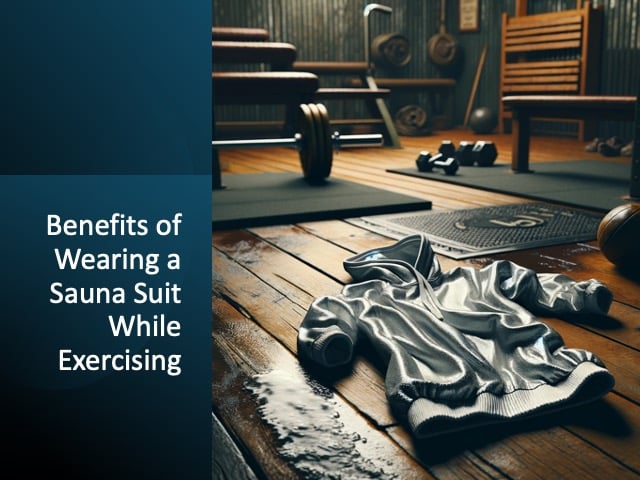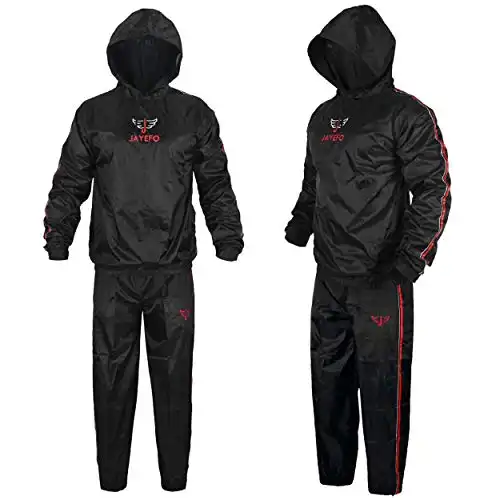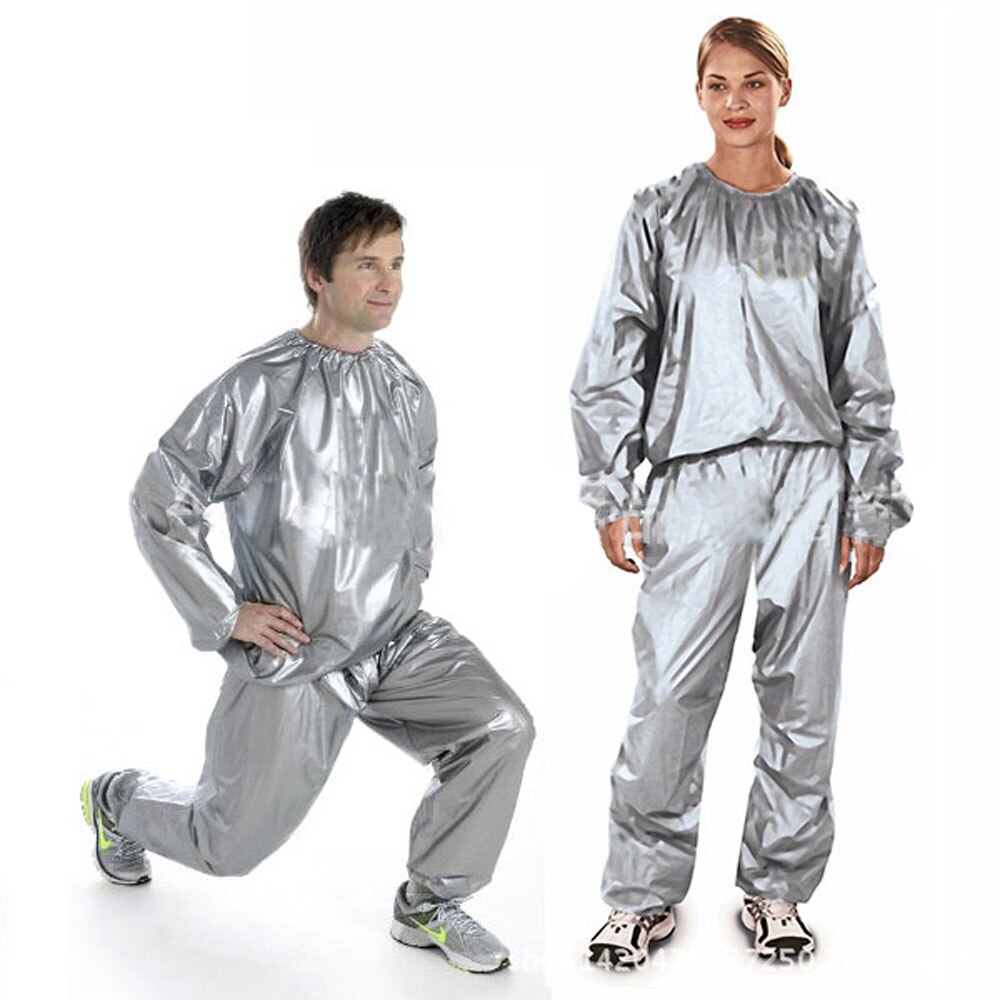Benefits Of Wearing A Sauna Suit While Exercising

The use of sauna suits during exercise has become increasingly popular, with proponents claiming a range of benefits from increased weight loss to enhanced detoxification. But what does the science say about these claims? This article explores the potential benefits and risks of wearing sauna suits while exercising, drawing upon available research and expert opinions.
Sauna suits, typically made of non-breathable materials like neoprene or PVC, are designed to trap body heat and increase perspiration. This practice aims to mimic the effects of a sauna, leading to rapid water weight loss and a perceived boost in metabolism. It's important to examine whether the purported advantages are supported by evidence and what precautions individuals should take.
Understanding Sauna Suit Mechanisms
The primary mechanism behind sauna suits is simple: increased body temperature leads to increased sweating. This thermogenic effect forces the body to cool itself down, primarily through evaporation of sweat.
The resultant water loss can create the illusion of significant weight reduction, particularly appealing to athletes or individuals seeking short-term results. However, it's crucial to differentiate between water weight and actual fat loss.
Potential Benefits
While the scientific evidence is somewhat limited and often contradictory, some studies suggest potential benefits associated with sauna suit use during exercise. Some studies have indicated that wearing sauna suits might lead to increased calorie expenditure during workouts.
The elevated body temperature forces the cardiovascular system to work harder, potentially burning more calories in the process. This increased metabolic rate, though temporary, could contribute to weight management goals alongside a balanced diet and exercise regimen.
Anecdotal evidence also suggests that sauna suits may promote detoxification through increased sweating. While the body does eliminate some toxins through sweat, the liver and kidneys are the primary organs responsible for detoxification.
Therefore, relying solely on sauna suits for detoxification may not be an effective or sustainable strategy. Some users report enhanced muscle flexibility and reduced risk of injury due to the increased warmth of the muscles.
However, this benefit needs more rigorous scientific investigation. Furthermore, the increased sweat production could assist in flushing out excess salt and minerals that lead to bloating.
Risks and Considerations
Despite the potential benefits, the risks associated with sauna suit use during exercise should not be overlooked. Dehydration is a major concern. Excessive sweating without adequate fluid replacement can lead to dehydration, electrolyte imbalances, and potentially life-threatening complications.
Heatstroke is another serious risk. Overheating can overwhelm the body's cooling mechanisms, leading to heatstroke, which requires immediate medical attention. Individuals with pre-existing cardiovascular conditions should exercise extreme caution or avoid sauna suits altogether.
The added strain on the heart could exacerbate existing problems. It is also necessary to consider the skin problems. Prolonged exposure to sweat and trapped moisture can lead to skin irritation, rashes, and fungal infections.
Proper hygiene, including showering and changing into clean, dry clothes after each workout, is essential to minimize these risks. Before using a sauna suit, consultation with a healthcare professional or certified trainer is strongly recommended.
This is to assess individual risk factors and determine whether the practice is appropriate. According to the American College of Sports Medicine, rapid weight loss strategies, including sauna suits, are generally discouraged for athletes due to the potential for adverse health effects and compromised performance.
Expert Opinions and Research Findings
Dr. Emily Carter, a sports medicine physician, emphasizes the importance of hydration and monitoring body temperature when using sauna suits. "While sauna suits might provide a temporary boost in weight loss, the risks of dehydration and heatstroke outweigh the benefits for most individuals," she stated in a recent interview.
A study published in the Journal of Strength and Conditioning Research examined the effects of sauna suits on athletic performance. The findings indicated that while sauna suits did lead to greater water loss, they also impaired power output and endurance.
This suggests that the performance decrements might negate any perceived benefits. Another study conducted by the National Institutes of Health found no significant difference in fat loss between participants who exercised with and without sauna suits, indicating that the primary effect is water weight reduction.
It is also revealed that any potential benefits of sauna suits are likely short-lived, and long-term results require sustained lifestyle changes. These include proper diet and a consistent exercise program.
Individuals should remember that wearing sauna suits has the potential to cause a negative impact on performance and well-being. A sensible strategy focuses on safety and is tailored to individual goals and health conditions.
Conclusion
Sauna suits can induce rapid water weight loss and may temporarily increase calorie expenditure during exercise. However, the risks of dehydration, heatstroke, and impaired athletic performance should not be underestimated.
For most individuals, a balanced diet, regular exercise, and adequate hydration are more effective and safer strategies for achieving sustainable weight management and overall health. If considering sauna suit use, consult with a healthcare professional to assess individual risks and benefits.
Ultimately, prioritize safety and long-term health over quick fixes and potentially harmful practices. The pursuit of fitness should be approached with caution and a focus on evidence-based strategies.


















